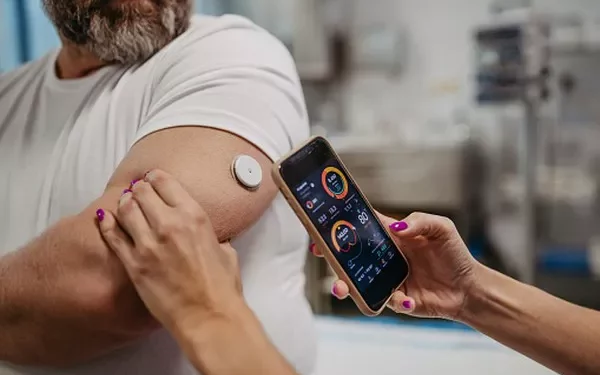For millions of people, migration is driven by conflict, persecution, or natural disasters, but those living with chronic diseases like diabetes face even greater risks on their journey to safety. Diabetes, now among the top ten leading causes of death globally, affects over half a billion people worldwide. Yet, access to essential diabetes care—particularly insulin pens and other life-saving medications—remains a significant challenge for migrants, especially in low- and middle-income countries and humanitarian settings.
In these difficult conditions, insulin pens—often more convenient than traditional insulin vials and syringes—are a lifeline for individuals with diabetes. However, access to such tools is severely limited in many parts of the world, particularly in crisis zones where medical supplies are scarce and costly. This disparity leaves vulnerable populations with inadequate treatment, heightening the risks and complications of managing the disease during displacement.
Here, three individuals who now reside in Athens share their personal stories of migration while managing diabetes, shedding light on the challenges faced by people on the move with chronic conditions.
Amina’s Struggles with Type 1 Diabetes
Amina’s son, Ehsen*, was just seven years old when he began experiencing alarming symptoms: bedwetting and an insatiable appetite. A visit to the doctor confirmed her worst fear—Ehsen had Type 1 diabetes. Despite the initial lack of access to insulin pens in Iraq, Amina used syringes and vials to administer insulin to her son, a process that was both painful and emotionally taxing. “It was agonizing to see my child cry from the injections, but I cried even more than he did,” she recalls.
In addition to managing his diabetes, Amina faced significant social challenges. When she informed her son’s school about his condition, the principal informed her that they could not accommodate his medical needs, forcing Ehsen to drop out. Amina’s story highlights the compounded hardships of living with a chronic illness in conflict zones, where access to healthcare, education, and support systems are limited.
Ghassan’s Journey from Gaza to Greece
Ghassan Fakhri Jabar, a former government employee in Gaza, had been living with diabetes for 15 years, managing the condition with insulin supplied by the United Nations Relief and Works Agency (UNRWA). When he decided to reunite with his two sons in Germany, the agency provided him with a two-month supply of insulin to carry with him on his journey.
What followed was a perilous migration that took Ghassan, his wife, daughter, and other children through multiple countries in search of safety. After an arduous eight months and 15 failed attempts to reach Greece, Ghassan finally arrived with his family. Along the way, the limited access to adequate diabetes treatment posed constant risks. “I was travelling with insulin vials and syringes, which were difficult to transport, and in some places, I had trouble keeping my insulin refrigerated,” he says. Ghassan’s experience underscores the critical importance of portable and easily administered medical tools, particularly in long and unpredictable journeys.
Anis’s Struggle in the Aftermath of War
Anis* fled Syria amidst the ravages of war, losing everything, including his home, in the process. The emotional and physical toll of war left him with severe fatigue and body tremors. It was only after reaching Türkiye that Anis sought medical help, where he was diagnosed with diabetes and began insulin therapy.
In the absence of the necessary equipment to monitor his blood sugar levels, Anis struggled to manage his condition. “It felt like my body was no longer my own. The fatigue was overwhelming,” he remembers. With the help of local doctors, Anis was eventually able to access a glucose monitoring device, a critical step in managing his diabetes effectively. His story highlights the vulnerability of migrants who, already facing the trauma of displacement, are also grappling with the added burden of managing chronic health conditions in resource-limited settings.
The Need for Improved Access to Diabetes Care in Humanitarian Settings
While insulin pens and modern diabetes medications offer a simplified and more reliable form of treatment, their high cost and limited availability in low- and middle-income countries make them inaccessible to many migrants. Humanitarian organizations like Médecins Sans Frontières (MSF) continue to provide essential medical support in these regions, but the challenge remains: How can global health systems ensure that migrants with chronic diseases like diabetes receive the care they need?
As the stories of Amina, Ghassan, and Anis illustrate, migration with a chronic illness is fraught with challenges. Providing adequate healthcare—including access to insulin, glucose monitoring devices, and educational resources—could mean the difference between life and death for people on the move. The need for global action to ensure that all individuals, regardless of their migration status, have access to essential diabetes care has never been more urgent.
Related topics:
The Growing Concern of Type 2 Diabetes in Children: A Rising Epidemic



























